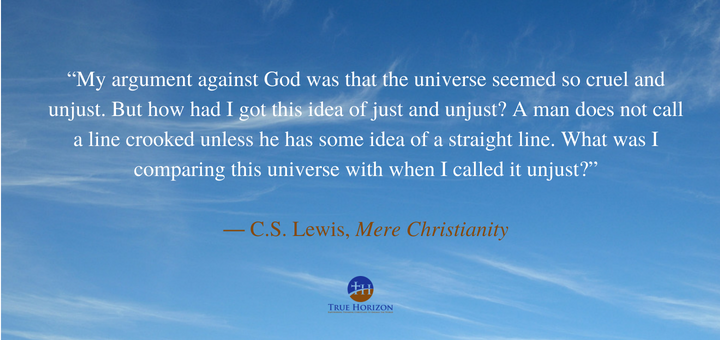New Atheists (6); Apples To Oranges

Sam Harris despises religion — so much so that he has blinded himself to an intellectually honest assessment about the differences between them. To put that claim in context, Harris (as discussed earlier here), misunderstands the concept of condemnation to hell and, because of that misunderstanding, believes his in-your-face his chest beating has some force behind it when he says:
The fact that my continuous and public rejection of Christianity does not worry me in the least should suggest to you just how inadequate I think your reasons for being a Christian are.
His serious delusion regarding the public impact of his own views aside, Harris’ taunt (p. 4) rings hollow. I can only speak for myself of course, but it seems that Harris fails to realize that we Christians don’t hold our view based on the popularity or reputation of those who may, or may not, share it with us. To be honest, most Christians had never heard of Sam Harris before his book hit the stores. But this kind of misunderstanding on his part leads him to make what can only be described as completely baseless associations like this:
Assertion (p. 6-7):
Every devout Muslim has the same reasons for being a Muslim that you have for being a Christian. And yet you do not find their reasons compelling. The Koran repeatedly declares that it is the perfect word of the creator of the universe … The burden is upon them to prove that their beliefs about God and Muhammad are valid. They have not done this. They cannot do this. Muslims are not making claims about reality that can be corroborated
Understand that the way you view Islam is precisely the way devout Muslims view Christianity. And it is the way I view all religions.
Response: To put it is nicely as I can, Harris’ complete ignorance about the nature of religion in general, and the relationship between Christianity and Islam in particular, is stunning.
For one thing, Harris seems oblivious to the fact that Christianity and Islam share important parts of the Old Testament — including the Torah (the first five books of the Bible) and the Psalms. That being the case, the two religions accept the book of Genesis as being some sort of account (though there are many, variant interpretations) of the origins of the universe in which we live. These impact the arguments regarding the question of whether or not God exists. In fact, one of the most compelling arguments that Christian philosophers use in that debate is the Kalam Cosmological Argument, an argument that originated with Muslim scholars in around the 9th century A.D. This argument gives scientific and philosophical support to the claim that the universe had a beginning in the finite past — an implication that is perfectly consistent with the Islamic/Jewish/Christian theistic view of origins.
In other words, in the origins debate — despite the claims of atheists like Harris and Dawkins (i.e. “science has disproved God”) — there is powerful scientific evidence that supports the claims of Scripture. Though they may reject it, it is hard to deny that this is pretty compelling evidence in favor of the theistic hypothesis — at least for those who take an intellectually honest approach to considering such things.
But that’s not the worst thing about Harris’ comment. The more important thing he misses is that the origins debate is where the similarities between Christianity and Islam end. Their respective views of God in general and Jesus in particular couldn’t be farther apart. The Allah of Islam shares little, if any, in common characteristics with the Christian God of the Bible.
Additionally, there are sharp distinctions that must be drawn between Muhammad and Jesus. Muhammad did no miracles and made claims that have absolutely no historical support for their validity. His pronouncements were about “revelations” that could not be corroborated beyond his own assertions about them, and he wrote a book of revelation (the Koran) that can only be described as rambling and difficult to decipher in its most important respects.
Jesus on the other hand, made claims, offered predictions and performed miracles that are completely supported by historical evidence — including his own crucifixion, death and resurrection. The clarity of his teaching and the intuitive truth it revealed about the nature of human depravity and the solution to fix it, is revered even by those who don’t accept his claims to divinity.
Muhammad’s religion traded on fear and submission. Jesus’ Christianity is based in forgiveness and redemption.
The point is that Harris dismisses “all religions” (his words) equally while failing (refusing?) to see that there are vast and profound differences between religions — even those that may seem superficially equivalent to someone who hasn’t delved into them.
Remember, Harris was compelled to write his books in the wake of the 9/11 terrorist attacks. He equates Muslim terrorists with any religious person who has the audacity to think his beliefs are actually true. In doing so he is equating the actions of those who would murder innocent women and children (for instance) in keeping with the actual tenets of their faith, with the belief system of a Jesus who condones no such thing.
There are no Christians out there justifying blowing up innocent civilians to prove a point about their Christian faith. And if there were, they would not be acting in accordance with that faith. Christianity should not be held responsible for those who corrupt it. They should also not be held as being equivalent to those who do such things in complete accordance with theirs. To do so shows either a total disregard for honest intellectual debate or an equally complete inability to understand basic logic.
In short, the way Harris “views all religions” is not only unfair — it is irrational.


